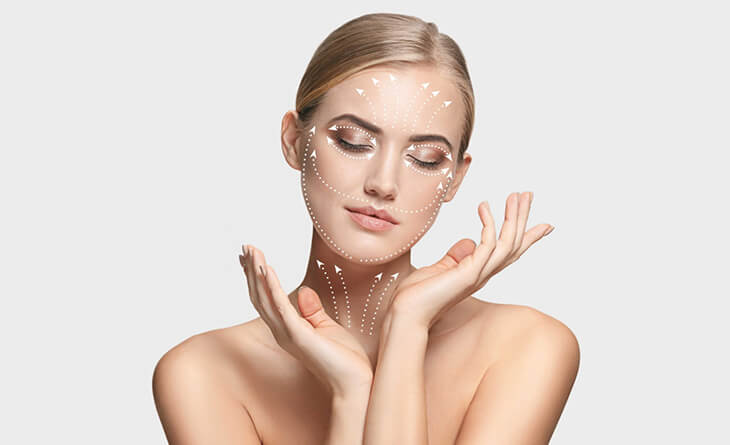The Duty of Psychological Assessments in Plastic Surgical Procedure Decision-Making
The assimilation of mental evaluations right into the plastic surgery decision-making process is increasingly acknowledged as vital for making sure ideal person end results. This nuanced approach raises crucial concerns regarding the extent to which psychological factors affect person satisfaction and total success in medical treatments.
Value of Mental Assessments
The importance of psychological analyses in plastic surgical procedure can not be overemphasized, as they act as a vital component in ensuring person security and complete satisfaction. These assessments aid determine underlying emotional conditions that may affect a client's assumptions and motivations for surgical treatment. By understanding the emotional account of the individual, cosmetic surgeons can make even more educated choices concerning the appropriateness of medical treatments.
Additionally, emotional evaluations help with reliable communication in between the patient and the healthcare group. They enable the identification of impractical expectations, which can bring about prospective frustration post-surgery. By dealing with these concerns early in the examination process, practitioners can guide individuals towards more appropriate therapy options or advise alternative techniques that align much better with their emotional well-being.
Additionally, mental analyses can help in establishing count on and connection in between clients and specialists, promoting a healing setting that urges open discussion. This partnership is vital for ensuring that the client feels supported throughout the surgical journey. Eventually, incorporating mental analyses within the cosmetic surgery structure is essential for promoting favorable outcomes, improving patient fulfillment, and decreasing the threat of post-operative problems associated to psychological wellness.
Common Mental Concerns Addressed
Various emotional concerns can emerge in individuals seeking cosmetic surgery, demanding detailed assessment and administration. One prevalent concern is Body Dysmorphic Problem (BDD), a condition characterized by a compulsive focus on perceived imperfections in physical look. Individuals with BDD might look for several surgical treatments in hopes of achieving impractical suitables, which can lead to frustration and further psychological distress.
Another common issue is reduced self-confidence, where people think that surgical treatment will substantially enhance their self-regard and social approval. This attitude can create an overreliance on exterior validation, complicating their psychological wellness.
Additionally, anxiety and clinical depression are often observed amongst candidates for cosmetic surgery. These psychological states can originate from numerous variables, consisting of life stressors or frustration with one's present body image. Clients might view surgical procedure as a service to minimize these sensations, but without proper mental assistance, their underlying issues might stay unaddressed.
Process of Mental Analysis
A comprehensive mental analysis generally includes a multi-step procedure made to examine the psychological health and motivations of people seeking plastic surgical treatment. Originally, the procedure begins with a detailed scientific meeting, where professionals collect details pertaining to the patient's psychological history, individual background, and certain factors for seeking surgical treatment.
Adhering to the interview, standardized emotional evaluations might be carried out to assess psychological wellness, personality type, and prospective psychopathology. These assessments can include questionnaires that determine body image dissatisfaction, anxiousness, clinical depression, and impractical assumptions associated to surgical end results.
The evaluator will certainly likewise consider any underlying mental conditions, such as body dysmorphic problem, which might influence a client's decision-making process. Collaboration with the client's medical care supplier or mental wellness professional might be suggested for a more thorough understanding of the individual's psychological account.
Lastly, responses sessions are carried out to click to read more talk about findings, address problems, and make sure that patients have practical expectations regarding the surgical end results - plastic surgery psychological assessment. This structured technique not just help in determining possible risks yet likewise boosts the decision-making process for both the person and the surgical group, adding to overall individual safety and satisfaction
Influence on Surgical Outcomes

People with impractical assumptions concerning surgical procedure end results go to a higher risk for postoperative dissatisfaction, which can lead to complications such as long term recuperation, additional surgeries, and even emotional distress. On the other hand, individuals who possess a healthy understanding of the possible advantages and constraints of procedures often tend to show better contentment and overall health postoperatively.
Additionally, mental evaluations can guide specialists in picking proper candidates for specific procedures, making certain that people are mentally prepared for the changes that come with surgical procedure. By incorporating emotional analyses right into the preoperative procedure, doctor can boost the opportunities of beneficial medical outcomes, consequently promoting a more liable approach to the practice of cosmetic surgery. plastic surgery psychological assessment. Ultimately, this combination serves to align person expectations with practical surgical results, leading the way for a much more favorable total experience
Enhancing Person Well-Being

Incorporating mental examinations right into the preoperative process promotes informed decision-making, making sure that individuals are completely knowledgeable about the prospective dangers and advantages of their wanted treatments. This detailed understanding promotes reasonable expectations, which are important for postoperative complete satisfaction and long-term emotional security.
In addition, attending to psychological wellness during the medical trip can enhance resilience versus potential postoperative obstacles, such as body dysmorphic problem or depression. plastic surgery psychological assessment. Continual assistance, including counseling and follow-up assessments, can further enhance favorable results, empowering people to accept their new identifications with confidence
Eventually, boosting client wellness with mental analyses not only boosts medical outcomes however also advertises a holistic technique to health and wellness, ensuring that the trip towards visual enhancement is improving and affirming, both literally and mentally.
Verdict
In conclusion, psychological assessments offer a crucial role in the plastic surgical procedure decision-making process by identifying prospective psychological health and wellness problems and unrealistic expectations. Eventually, incorporating mental evaluations right into preoperative examinations fosters a much more informed and encouraging atmosphere for individuals looking for cosmetic treatments.